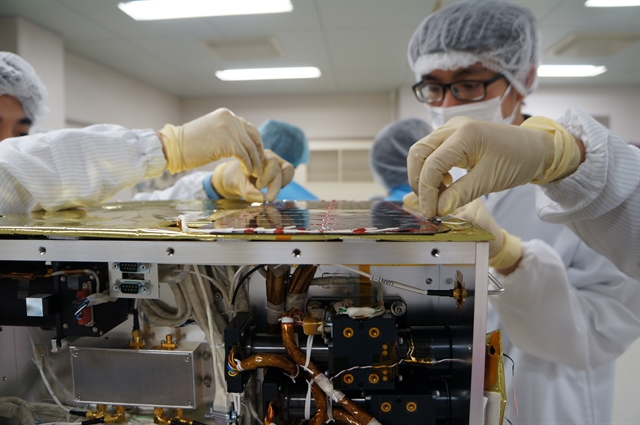 Economy
Economy

 |
| Researchers at the Việt Nam National Space Centre under the Việt Nam Academy of Science and Technology. — VNA/VNS Photo |
HÀ NỘI — In the draft amendments to the Law on Enterprises, the Ministry of Planning and Investment has proposed expanding the subjects eligible to establish businesses by revising and supplementing the provisions in Article 17 of the 2020 Law on Enterprises.
This amendment aims to allow public employees who are scientists to establish and manage businesses that trade in researched scientific products. The goal is to enhance the commercialisation and transfer of scientific and technological research results.
Nguyễn Minh Thảo, Head of the Business Environment and Competitiveness Research Department at the Central Institute for Economic Management (CIEM), believes it will create a more favourable environment for individuals to participate in business activities.
“This is an opportunity to realise the goal of promoting science and technology as a new driver of economic growth while ensuring a more favourable business environment," Thảo said.
"It will also help maximise the role of Vietnamese entrepreneurs in this new era.”
The Ministry of Planning and Investment has also proposed additional sanctions against enterprises that violate business registration regulations.
It aims to address negative practices that have arisen, including false capital contributions, fictitious capital increases and the establishment of businesses for non-commercial purposes.
In the draft law, the ministry suggests strengthening supervision, inspection and specific penalties for such enterprises. This includes adding requirements to the registration dossier, such as financial documents proving the financial capacity of individuals and organisations acquiring shares, contributing capital members and shareholders.
These measures aim to ensure their ability to fulfil payment obligations and contribute enough transferred capital. The provisions are designed to curb practices including false registered charter capital or shell companies acquiring controlling stakes in businesses to engage in unlawful activities.
Thảo emphasised the need to strengthen penalties for violations of business registration. This will ensure that business registration activities comply with regulations and that enterprises fulfil their commitments upon entering the market.
If approved, these proposed reforms will facilitate smoother, more dynamic and transparent market entry for businesses. — BIZHUB/VNS




